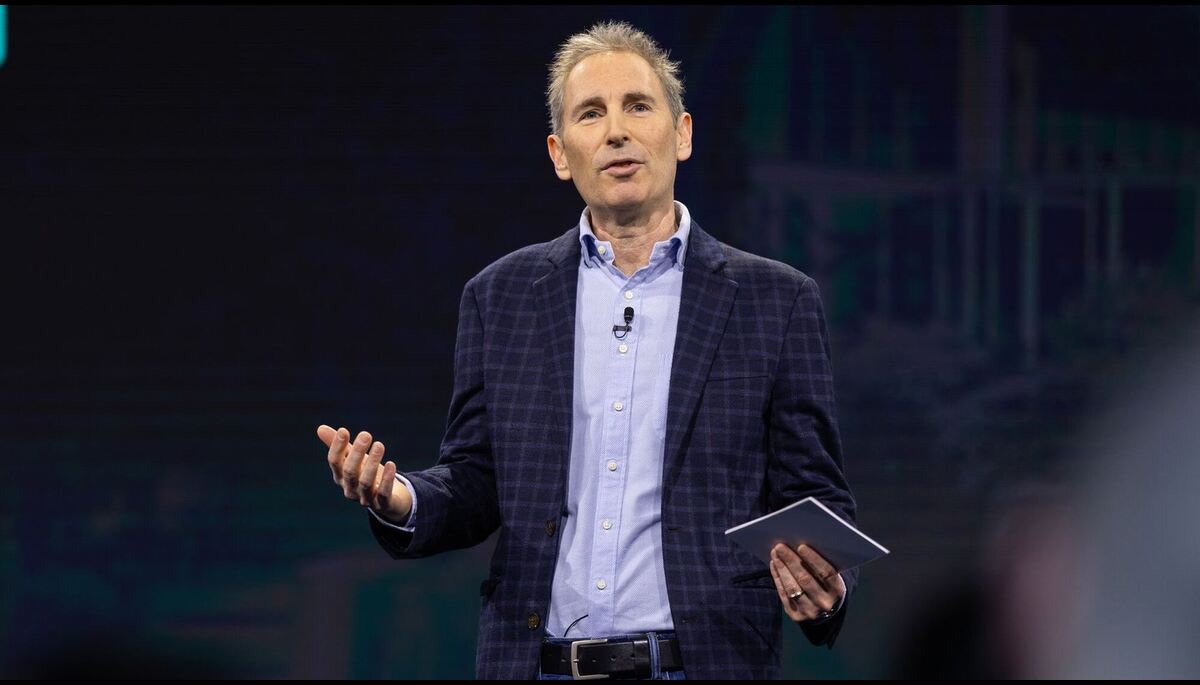
Amazon’s CEO Andy Jassy has confirmed that corporate job cuts are no longer temporary cost reductions—they’re part of a structural shift fueled by generative AI transformation. In his recent annual shareholder letter and internal memo, Jassy announced that as Amazon leans into AI-first operations, roles across corporate functions will be systematically reduced over the next few years.
1. The AI‑First Enterprise: Why Workforce Reductions Are Strategic
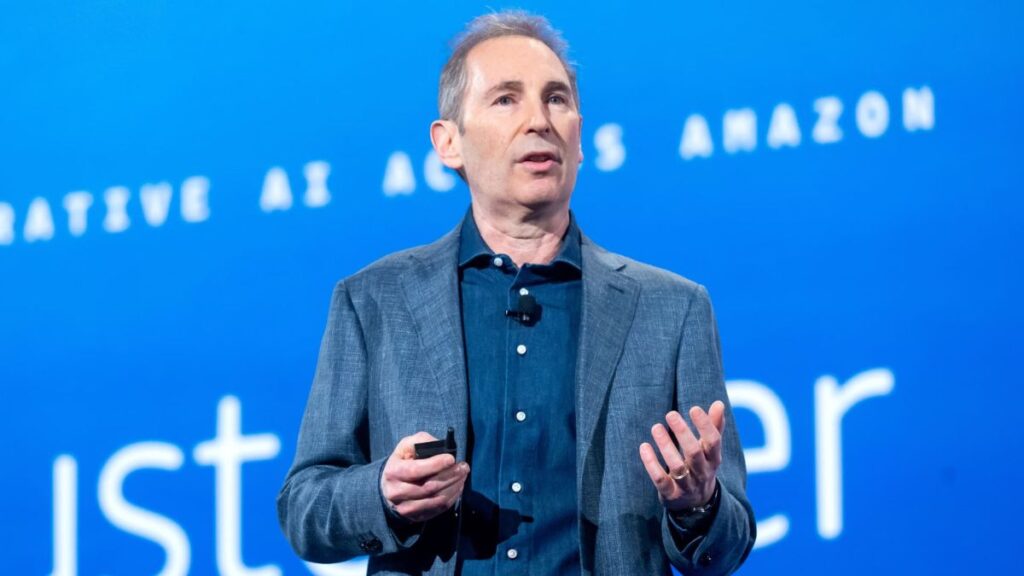
A Shift in Messaging
- Unlike past layoffs blamed on post‑pandemic budget misalignment, this time Amazon is transparent: AI is intentionally replacing human roles .
- Jassy: “We will need fewer people doing some of the jobs… efficiency gains from using AI extensively across the company.” .
Scale of Reductions
- Since late 2022, Amazon has cut over 27,000 roles, including 14,000 managerial jobs in early 2025—about 13% of global corporate leadership, saving up to $3.6 billion annually.
Business Context
- Although revenue remains strong, Amazon’s revenue per employee lags behind peers like Microsoft and Apple—cutting staff is a way to close that gap.
2. Amazon CEO AI Tools Replacing Corporate Functions
Amazon has launched over 1,000 AI-powered tools internally, reshaping functions across the board:
- Alexa+: autonomous voice assistant with decision-making capabilities.
- Global AI shopping assistant: supports tens of millions of customers.
- Purchase automation: Lens, Buy for Me, Recommended Size.
- Seller tools: auto-generate listings, creative campaign content.
- AWS bots: Q and QCLI draft and debug code.
- Warehouse AI: improved inventory forecasting, robot pathing, delivery speeds.
“Agents will let you tell them what you want… scour the web, write code… automate a lot of tasks that consume our time,” stressed Jassy.
These automation efforts aren’t superficial—they’re designed to reduce roles in areas like customer service, corporate communications, HR, and content development.
3. Amazon CEO The Broader Tech Layoff Trend
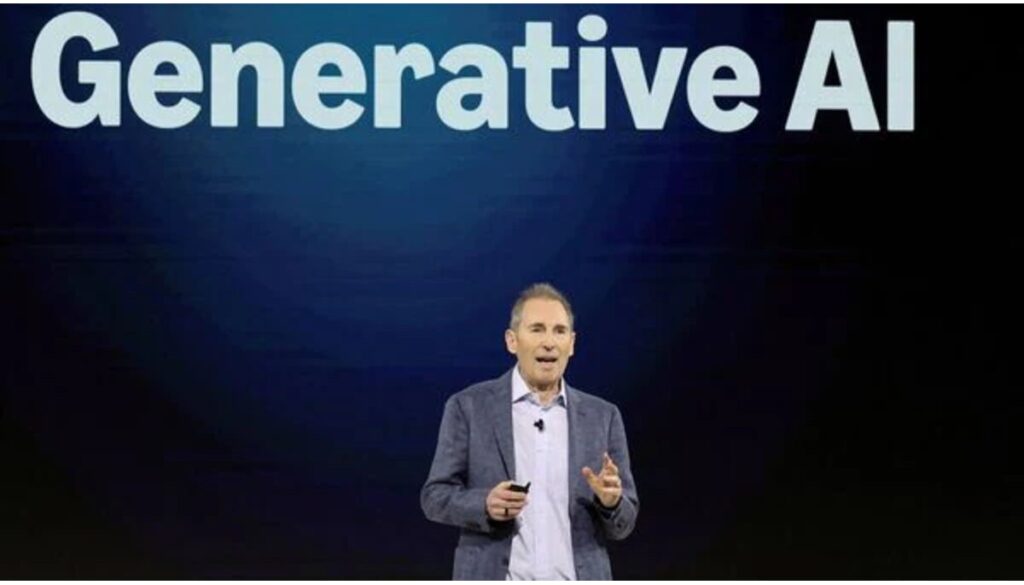
Amazon’s approach mirrors a wider industry trend: as of mid‑2025, over 61,000 jobs have been cut by more than 130 tech companies.
- Microsoft: cutting thousands in sales teams alongside an $80 billion investment in AI infrastructure.
- Meta, Google, IBM, CrowdStrike: adjusting hiring plans in line with AI strategies.
CEOs across the board are framing AI as both a growth enabler and a workforce reducer .
4. Amazon CEO Internal Response: Upskilling Over Replacement
Despite the layoffs, Amazon emphasizes upskilling employees to work alongside AI:
- Jassy encouraged employees to become familiar with AI tools to remain productive.
- A former developer noted his comfort with AI-augmented workflows augmented engineer work, not replaced it.
- Jassy’s messaging echoes calls from tech leaders who urge adoption or risk obsolescence.
However, some internal unrest has emerged—former employees argue that the company is viewing workers as “costs to cut” rather than innovation drivers.
5. Amazon CEO’s Strategic Motives Behind AI Investment

AI = Once‑in‑a‑Generation
Jassy equated generative AI to the rise of the internet or cloud.
Amazon projects to invest $75–100 billion in AI and cloud infrastructure in 2025.
AWS as AI Backbone
Amazon views AWS as the core platform for generative AI—supporting internal tools, enterprise clients, and foundational models .
Efficiency & Innovation Gains
AI automation brings significant efficiency—like Amazon Q saving 4,500 developer-years and $260 million annually.
Jassy highlights efficiency and delivery speed improvements via AI and regionalized logistics.
6. Amazon CEO Risks & Consequences
1. Workforce Anxiety & Burnout
Flattened management structures and expanded workloads are leading to employee burnout and insecurity.
2. Skill Mismatch & Job Displacement
Roles with less direct customer or creative impact face greater elimination; ongoing training and transition support remains crucial .
3. Organizational Culture
The shift toward an “AI-first”, startup-like culture has mixed reception—bureaucracy is being slashed, but some worry about loss of institutional knowledge .
7. Amazon CEO: What It Means for Amazon Employees
| Employee Category | What It Means | Recommendation |
|---|---|---|
| Managers | High likelihood of role elimination | Upskill in AI management and strategic roles |
| Engineers/Developers | AI augments rather than replaces roles | Learn AI tooling like QCLI, Bedrock |
| Corporate Staff (Marketing, HR, Comms) | AI taking over routine tasks | Re-skill in AI oversight, analytics |
| Warehouse/Delivery | Efficiency gains may reduce need for manual labor | Explore tech-training for supply chain AI |
Amazon offers support via separation packages, re-skilling, and job placement services.
8. Amazon CEO Looking Ahead: AI & Workforce in 2025
- Job cuts will continue via attrition or targeted layoffs focused on automation-led efficiency.
- New AI-focused roles will emerge—roles will transform rather than disappear.
- Cross-industry normalization: AI-driven workforce changes will become a competitive necessity across tech and beyond .
Amazon CEO Andy Jassy Hints at Job Cuts: – Key Figures (2022–2025)
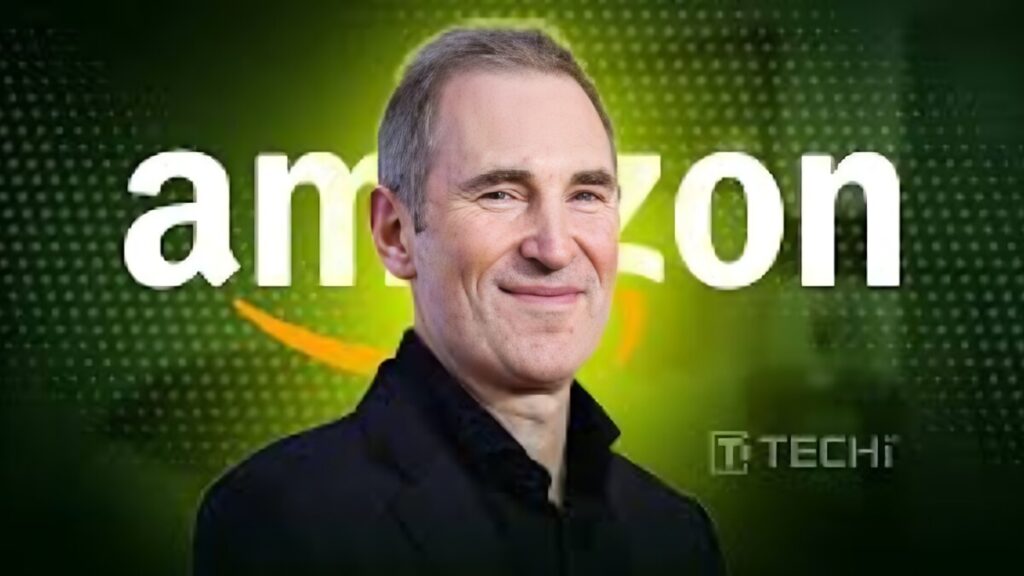
| Year | Job Cuts Announced | Departments Affected | Notes |
|---|---|---|---|
| Late 2022 | 27,000+ | Corporate, Tech, Alexa, Kindle | Initial wave post-pandemic |
| Early 2025 | 14,000+ | Mid-level Management, HR, Prime Video, Twitch | 13% of global corporate staff |
| Total | 41,000+ | Multiple | $3.6 billion in projected savings |
Amazon CEO Andy Jassy Hints at Job Cuts: AI Tools Replacing Traditional Roles at Amazon
| AI Tool/Platform | Purpose | Replaces/Reduces |
|---|---|---|
| Alexa+ | Smarter voice assistant with action-taking ability | Customer service, manual assistance |
| AI Shopping Assistant | Personalized shopping & automation | Front-end support, recommendation teams |
| Lens / Buy for Me | Visual and automated buying tools | Product research, personal shopping |
| Q / QCLI (AWS) | AI dev tools that write/debug code | Developer assistant tasks |
| Campaign Generators | Seller content automation | Marketing & content writing roles |
| Warehouse AI | Optimized delivery, robot routing | Supply chain and logistics analysts |
Amazon CEO Andy Jassy Hints at Job Cuts: Strategic Goals Behind Amazon’s AI Investment
| Strategic Area | Impact of AI Integration | Keywords |
|---|---|---|
| Cost Efficiency | Reduction in overhead and operational expense | AI efficiency gains, cost cutting |
| Innovation Speed | Faster product rollout and decision-making | AI for automation, agile deployment |
| Customer Experience | Hyper-personalized recommendations and actions | AI-powered personalization |
| Developer Productivity | AI agents assist with coding, debugging, testing | AI tools for developers |
| Logistics Optimization | Inventory and delivery streamlined via AI | Supply chain automation |
Amazon CEO Andy Jassy Hints at Job Cuts Comparison – Past vs Present Layoff Rationale
| Timeframe | Primary Reason | Description |
|---|---|---|
| 2022–2023 | Cost Optimization | Post-COVID hiring corrections |
| 2024 | Restructuring + Cost Cuts | Middle management downsizing |
| 2025 (Current) | AI-led Workforce Reduction | Automation is replacing corporate roles |
Amazon CEO Andy Jassy Hints at Job Cuts Roles Most at Risk Due to AI Automation
| Job Role/Function | Risk Level | AI Impact Description |
|---|---|---|
| Middle Management | High | Decision layers flattened by AI agents |
| HR & Recruiting Ops | Medium | AI handling shortlisting, onboarding, assessments |
| Marketing Content Writers | High | AI generating product descriptions & campaigns |
| Customer Service | High | Alexa+ and AI chatbots replacing manual support |
| Logistics Planners | Moderate | AI forecasting and real-time routing |
| Software Testers | Low | AI supports but doesn’t replace coding insight |
Amazon CEO Andy Jassy Hints at Job Cuts: Tech Sector Job 2025 – Company-wise Breakdown
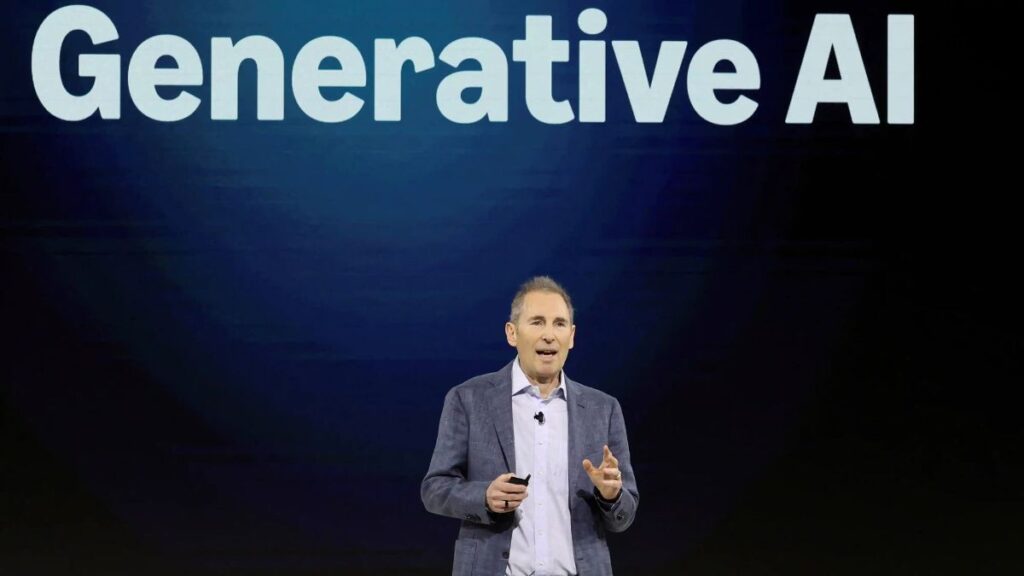
| Company | Approx. Layoffs (2025) | AI Integration Focus Area |
|---|---|---|
| Amazon | 14,000 (2025 alone) | Alexa, AWS, Fulfillment, DevOps |
| Microsoft | ~6,000 | Copilot, Azure OpenAI |
| Meta (Facebook) | ~3,000+ | LLaMA models, internal AI agents |
| ~4,000 | Gemini AI, cloud, search intelligence | |
| IBM | ~2,000 | Watson AI, enterprise automation |
Amazon CEO Andy Jassy Hints at Job Cuts Conclusion
Amazon’s headcount reductions are not a reflex—they’re a deliberate pivot to an AI-first future, with roles reshaped or eliminated in favor of automation. As the company invests heavily in AI, employees are urged to reskill, adapt, and embrace AI collaboration to remain integral to the firm’s operations. This shift encapsulates a broader transformation in the tech industry: AI is not a temporary cost‑cutting measure; it’s strategically redefining workforce norms across corporate functions.
Note: All information and images used in this content are sourced from Google. They are used here for informational and illustrative purposes only.
FAQs on Amazon CEO Andy Jassy’s AI-Driven Job Cuts & Transformation
1. Why is Amazon cutting corporate jobs in 2025?
Amazon CEO Andy Jassy confirmed that job cuts are part of a long-term AI transformation strategy. Unlike past layoffs for cost-cutting, these reductions align with automation-led efficiency, improved productivity, and operational streamlining across corporate functions.
2. How many jobs has Amazon cut so far?
From late 2022 to early 2025, Amazon has cut over 41,000 roles, including 14,000 managerial jobs in 2025 alone, saving the company approximately $3.6 billion annually while integrating AI-powered tools to handle routine tasks.
3. Which job roles are most impacted by AI at Amazon?
Roles facing high automation risk include:
- Middle Management: AI-driven decision systems reduce the need for layers of approval.
- HR & Recruiting Ops: AI tools now handle onboarding and candidate screening.
- Marketing & Content Writing: Automated campaign and content generation tools are replacing routine tasks.
- Customer Service: Alexa+ and AI chatbots now manage customer interactions.
4. What AI tools is Amazon deploying to replace traditional functions?
Amazon has launched over 1,000 AI-powered tools, including:
- Alexa+: Smarter voice assistant with action-taking abilities.
- AI Shopping Assistant: Personalized shopping support for millions of users.
- Q & QCLI (AWS): Developer productivity tools writing and debugging code.
- Warehouse AI: Automates routing, delivery forecasting, and inventory tracking.
5. Is Amazon offering reskilling opportunities for employees?
Yes, Andy Jassy has emphasized upskilling and AI literacy as key survival tools for employees. Amazon provides AI training programs, internal certifications, and separation packages for impacted roles, ensuring a smooth transition to emerging AI-based positions.
6. How does Amazon’s AI strategy compare with other tech giants?
Amazon’s AI-led layoffs reflect a broader industry trend. In 2025:
- Microsoft is reshaping sales teams while investing $80 billion in AI infrastructure.
- Meta, Google, and IBM are all realigning workforces toward automation, AI agents, and generative AI adoption.
7. Will AI completely replace human workers at Amazon?
Not entirely. While repetitive and administrative tasks are being automated, new AI-focused roles in development, analytics, and AI management are emerging. Amazon projects significant job transformation rather than full job elimination over time.
8. What are the long-term benefits of Amazon’s AI-first approach?
Amazon expects to achieve:
- $3.6B annual savings via workforce efficiency.
- Faster product rollouts through AI-enabled innovation.
- Hyper-personalized customer experiences using advanced recommendation systems.
- Higher developer productivity via automation in coding and debugging.
9. How will Amazon employees adapt to AI-driven changes?
Experts recommend employees reskill in AI tools, explore cross-functional roles, and embrace automation as a collaboration opportunity rather than competition. Roles in AI operations, data analytics, and tech strategy are expected to grow rapidly.
10. What does this mean for the future of the tech workforce?
The AI-led workforce shift is expected to become the norm across tech firms by 2026. Companies will focus on leaner, AI-first structures, with workers needing continuous learning to stay competitive in an automation-driven economy.







Leave a Reply